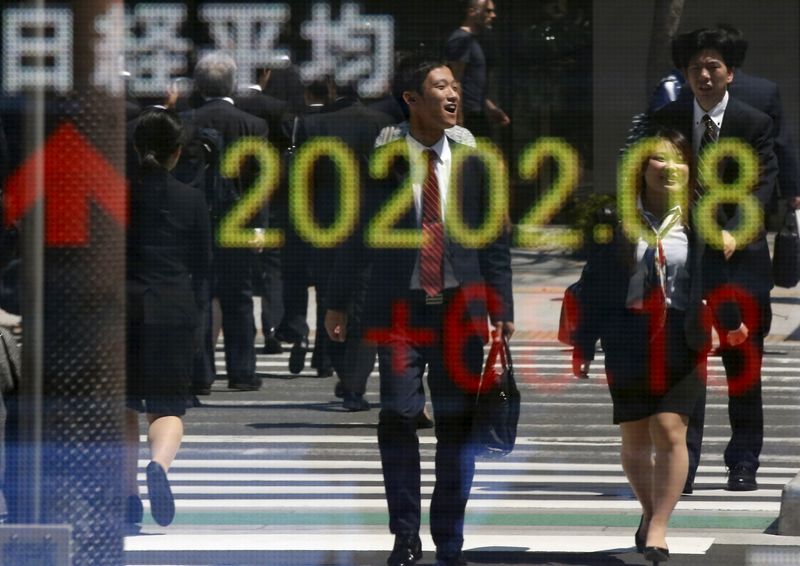Investing.com-- Most Asian stocks rose on Monday, rebounding from steep losses in the prior week amid growing bets that a conflict between Iran and Israel will not worsen, although sentiment still remained on edge.
A rout in technology stocks also appeared to have cleared after the sector, specifically chipmakers, logged heavy losses last week.
U.S. stock index futures also rose in Asian trade, with Wall Street set for a rebound from sharp losses in the past week.
Chinese stocks edge higher as loan prime rate remains steady
China’s Shanghai Shenzhen CSI 300 and Shanghai Composite indexes rose 0.4% and 0.3%, respectively. The two indexes were among the few Asian bourses to end positively last week, as the prospect of more supportive measures from Beijing buoyed sentiment towards local markets.
The People’s Bank of China left its benchmark loan prime rate unchanged at record-low levels on Monday, as it aimed to keep monetary conditions as loose as possible to support an economic recovery.
Further reductions in the loan prime rate may be on tap later this year, given that Beijing still needs to increase its pace of stimulus measures to support the economy.
Hong Kong’s Hang Seng index jumped 2.3% on Monday, rebounding from
Asian markets buoyant as Iran-Israel fears ease
Broader Asian markets rebounded from last week’s losses, as a lack of immediate escalation between Iran and Israel helped improve sentiment.
Japan’s Nikkei 225 and TOPIX indexes rose 0.8% and 1.2%, respectively, after tumbling between 4% and 6.5% over the past week.
Focus this week is squarely on a Bank of Japan rate decision later this week. The BOJ will meet for the first time after a historic interest rate hike in March.
Australia’s ASX 200 rose 1% after losing 2.8% last week, while South Korea’s KOSPI rose 0.9% from a 3.4% fall last week.
Futures for India’s Nifty 50 index also pointed to a positive open.
Regional markets had tumbled on Friday after Israel reportedly carried out strikes in and around Iran.
But Iran downplayed the impact of the attacks, and outlined no immediate plans to retaliate. This drove up hopes that a conflict between Iran and Israel will not spill over into a broader war in the Middle East.
Still, sentiment towards risk-heavy markets, particularly stocks, remained fragile, especially in the face of higher-for-longer U.S. interest rates.
Asian markets were still nursing a weak start to the second quarter, and were now awaiting a slew of key U.S. cues this week.
Several U.S. technology giants are set to report quarterly earnings this week, while PCE price index data- the Federal Reserve’s preferred inflation gauge- is also on tap.
